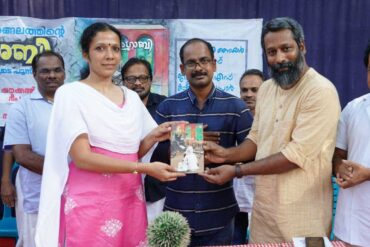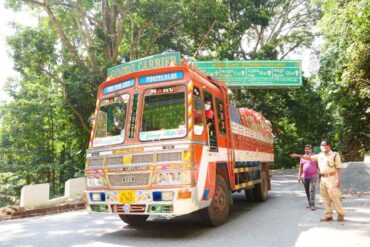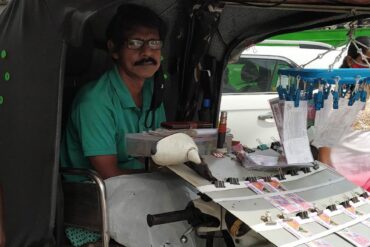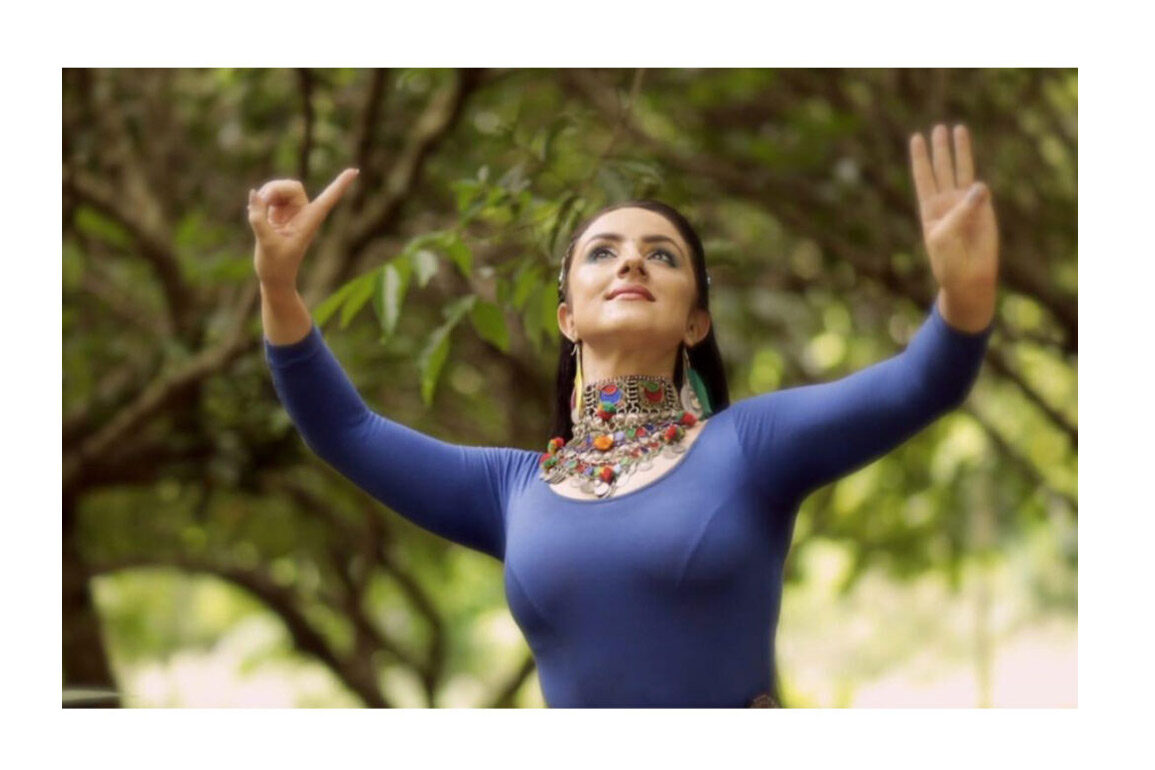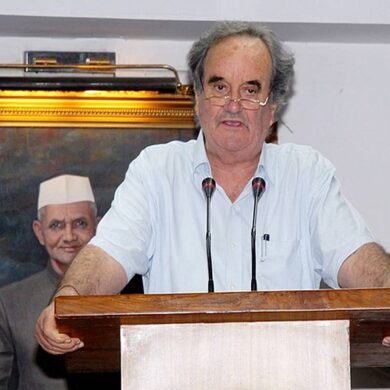When the Kerala-based actor/dancer Paris Laxmi went to Dubai in January for a show, during her spare time, she roamed around the Global Village. In a shop, she came across an Afghan tribal necklace in German silver. It had a length of 6 inches and a width of 9 inches encrusted with enamel stones and beads with coins hanging in a straight line at the bottom. “It was expensive, but I could not resist it,” she says.
Little did she know that when she would make a five-minute film called Mother Earth a few months later, she would be wearing this eye-catching necklace.
The film opens with images of Laxmi’s fingers, as she caresses leaves, fruits, flowers, plants, the stem of a banana plant and the bark of a tree. The soundtrack is Mollywood composer Rahul Raj’s instrumental composition, Celestium. A Mahatma Gandhi quote appears: The Earth provides enough to satisfy every man’s needs, but not every man’s greed.

When her full figure appears, Laxmi is clad in a blouse with long sleeves and a blue skirt. And she had a reason to choose this colour. “People have said that the Earth looks blue from space,” she says. As she dances, with a tranquil look on her face, swivelling around, leaning sideways, running forward, in a green area, smoke emerges and the forest breaks out into a fire. People rush forward and garland her. But these are unusual garlands.
It is a mix of plastic bottles, toothpaste, biscuit packets, toothbrushes, soap covers, wires, and clips. “These are not recyclable,” says Laxmi. “One of my students Gayathri made it.” Later, men and women throw bundles of plastic packets and bottles at her face. She runs away and collapses. Then she screams. Soon, a boy and a girl clad in resplendent white come and kiss her on the forehead. And a sentence comes up on the screen: ‘Let us drastically reduce our destructive impact’.
Laxmi is worried about the future. “The planet is like our mother,” she says. “But we don’t realise how much harm we are doing to her. We have to change our ways. I wanted to personify her so I could show her dismay at the way the planet is being polluted by her children.”
People are too self-absorbed and don’t realise the damage they are doing. “But now Mother Nature has started to destroy us,” says Laxmi. “She is much more powerful than us. She feels that the only way for her to survive is to get rid of human beings. So, that’s why there is global warming and climate change.”
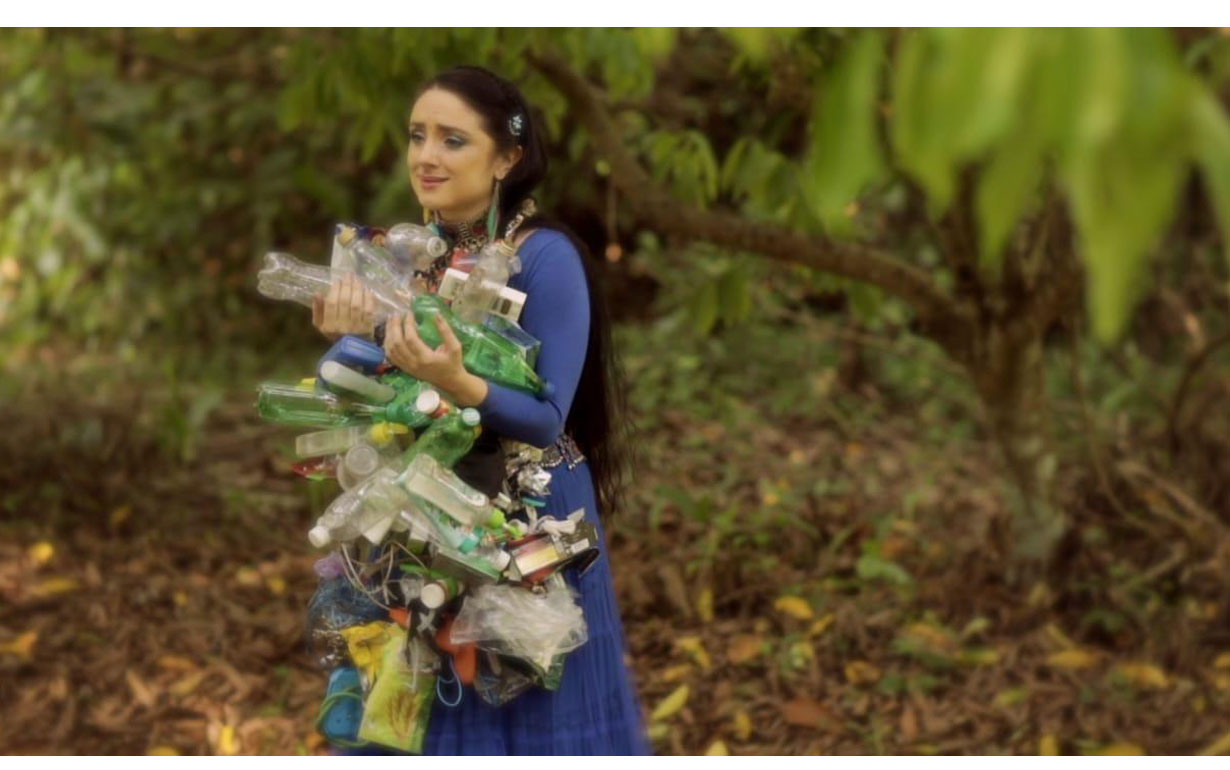 Laxmi says that governments should do something radical. “We could have four days a month when we do nothing,” says Laxmi. “That will enable the earth to heal as it has happened during the coronavirus pandemic. We need many novel ideas.”
Laxmi says that governments should do something radical. “We could have four days a month when we do nothing,” says Laxmi. “That will enable the earth to heal as it has happened during the coronavirus pandemic. We need many novel ideas.”
Laxmi stays at Vaikom with her husband, the Kathakali dancer Pallippuram Sunil. They have been married for eight years and run the Kalashakti School of Arts. Amazingly, Laxmi met Sunil for the first time when she was only seven years old and he was 21.
Sunil performed at a theatre in Fort Kochi. Laxmi had come on a holiday with her parents, Yves, a stage artist and poet, mother Patricia, a sculptor, and brother Theo Narayan from Aix-En-Provence in France. “Sunil’s dancing amazed me,” says Laxmi, who trained later to become a Bharatnatyam artist. “When we met the performers, I liked Sunil the most. He seemed kind and calm. I always remember that performance.”
She met him again when she was 16 years old and fell in love. Eventually, the marriage took place on September 14, 2012. A few months before, Laxmi converted to Hinduism through a Vedic puja, conducted by the Arya Samaj, at Vaikom.
Asked how India and Kerala have changed over the decades, Laxmi says, “People have become materialistic. They have more money. Earlier, in North India, there were so many cycles and cycle rickshaws on the roads. Later, the Bajaj and Vespa scooter replaced the cycles. And the car was the Ambassador. Those who had a car were considered wealthy. Now there are so many cars. In some families, they have two cars.”
In Kerala, she would see girls wearing a half-saree. But now nobody wears that now. Most wear Western clothes and salwar kameez. She would enjoy seeing girls going to school wearing their hair in plaits and coloured ribbons. Now that has also gone out of fashion.
She says Malayalis, as well as Indians are travelling abroad a lot more than in the past. “They have imbibed a global culture,” says Laxmi. “Thanks to the Internet, everybody can access unique aspects of the world.”
At her home, because of the pandemic, Laxmi is learning the techniques of scriptwriting. She knows how to speak Malayalam, so she has been able to act in a few Mollywood films. These include Big B, Bangalore Days, Salt Mango Tree, Olappeeppi and Tiyaan.
Like all artists worldwide, the pandemic has hit them hard. “Without stage performances, we artists cannot earn a living,” she says. “I am hoping the situation will stabilize in a few months.”

